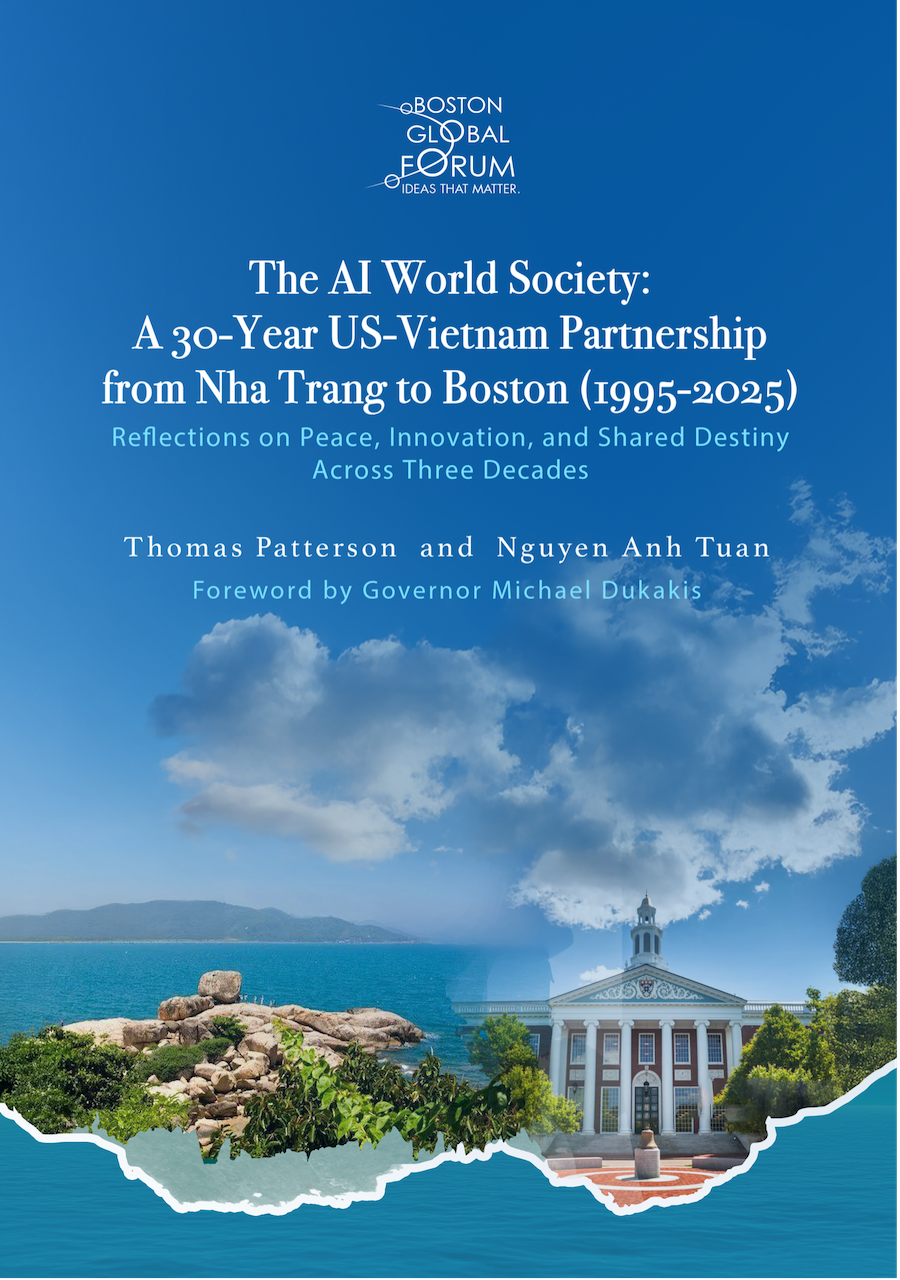“The AI World Society: A 30-Year US–Vietnam Partnership from Nha Trang to Boston (1995–2025)”
By Nguyen Anh Tuan and Professor Thomas Patterson (Harvard University), and the Necessity of a Meeting between President Donald Trump and Chief of the Communist Party of Vietnam To Lam
The book The AI World Society: A 30-Year US–Vietnam Partnership from Nha Trang to Boston (1995–2025), co-authored by Nguyen Anh Tuan and Harvard Professor Thomas Patterson, reflects on three decades of evolving relations between the United States and Vietnam. It highlights milestones in cooperation, challenges confronted, and the promise of a shared future in the Age of Artificial Intelligence and global digital transformation.
The book underscores a pivotal truth: the Vietnam–US relationship is built not only on strategic alignment but also on people-to-people trust. At the 80th United Nations General Assembly, President Luong Cuong emphasized that “by promoting the responsible development of advanced technologies, Vietnam is linking its domestic modernization with global concerns about ethics, inclusiveness, and security in AI.” At multilateral forums, Vietnam has consistently called for narrowing the digital divide and fostering cooperative approaches to science for the common good of humanity.
The volume also documents critical moments in the partnership. It stresses the importance of direct and frank dialogue at the highest level, recalling the need for a White House meeting between Chief of the Communist Party of Vietnam, To Lam, and President Donald Trump during Trump’s presidency. Such a meeting was essential to openly address obstacles, threats, and dangers facing Vietnam–US relations, as well as to chart new pathways for trust and cooperation.
In 2024 at Columbia University, Mr. To Lam further clarified Vietnam’s perspective: “Viet Nam’s development path cannot separate from the common trend of the world and human civilization. We will continue to accelerate the process of reform, opening up, and comprehensive and extensive international integration.”
At UNGA80, President Luong Cuong reiterated this vision: “By promoting the responsible development of advanced technologies, Vietnam is linking its domestic modernization with global concerns about ethics, inclusiveness, and security in AI.” This perspective places Vietnam at the heart of international conversations on ethical technology governance, showing how AI can become a bridge for peace, democracy, and human dignity.
Honorable Mark Kennedy: “Marking three decades since the normalization of U.S.–Vietnam relations, we celebrate not only reconciliation but the strategic foresight it represents. In a time of intensifying competition in the Indo-Pacific, the partnership between Washington and Hanoi underscores how former adversaries can become trusted partners in advancing regional stability, resilient supply chains, and a free and open order. The U.S.–Vietnam story is proof that bold leadership can transform history’s divides into tomorrow’s strengths.”
Looking ahead, the book points to an important opportunity: President Donald Trump should welcome Mr. To Lam in Washington in October 2025. Such a meeting would reaffirm mutual respect and shared interests, while opening new doors for collaboration in security, economic development, and governance in the digital and AI era.
Published by Tri Thuc Publishing House, the book represents an important contribution to the intellectual and diplomatic dialogue shaping the future of US–Vietnam relations.
